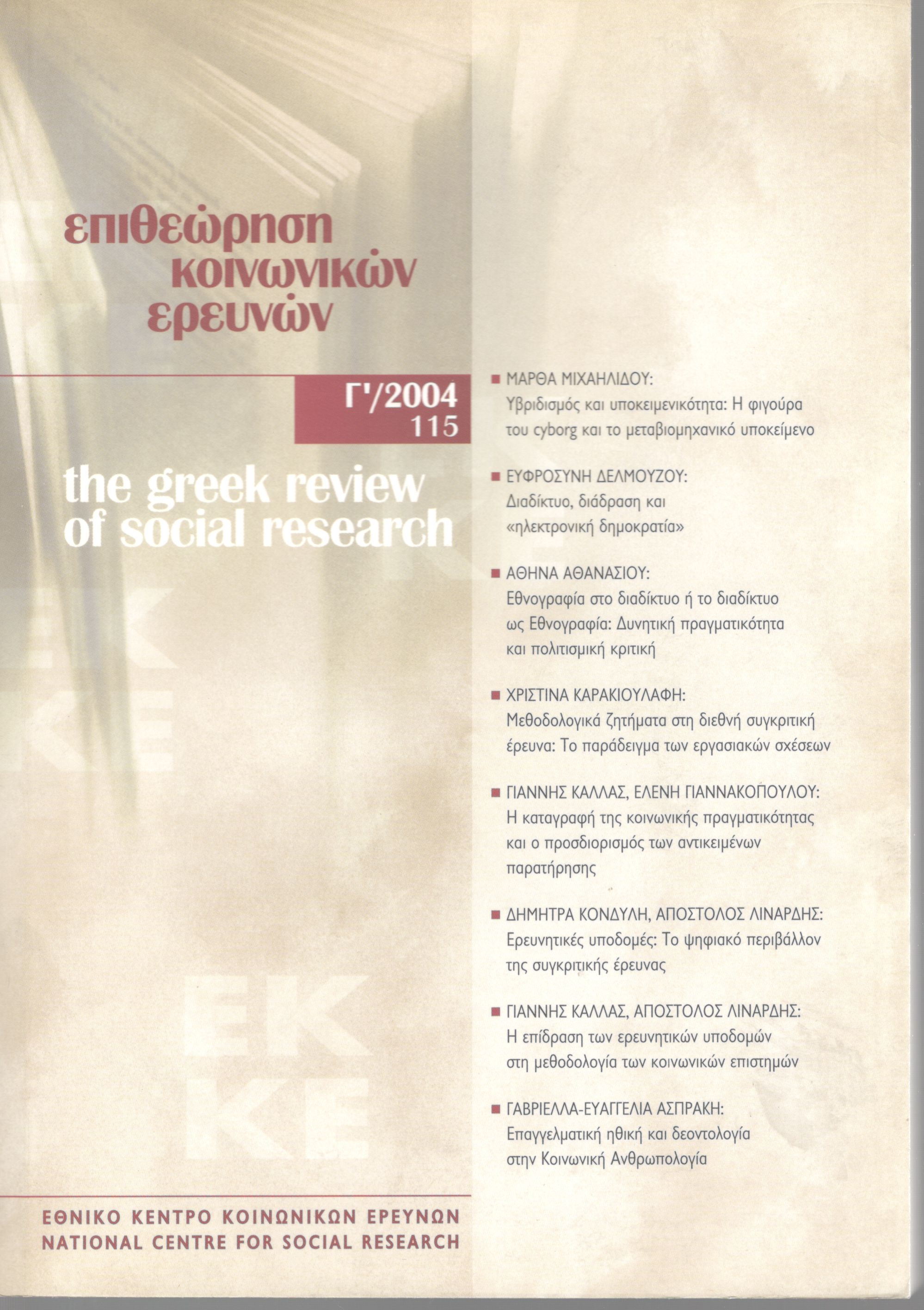Εθνογραφία στο διαδίκτυο ή το διαδίκτυο ως εθνογραφία: Δυνητική πραγματικότητα και πολιτισμική κριτική
Abstract
Αντλώντας από την προβληματική της ανθρωπολογίας του κυβερνοπολιτισμού, η εργασία προσεγγίζει το διαδίκτνο ως «αρχείο» πολιτισμικών διαδικασιών και δυναμικών, αλλά και πολιτισμικού αναστοχασμον και κριτικής. Θέτει τα ερωτήματα: Συνιστά το διαδίκτνο ένα νέο περιβάλλον εθνογραφικής έρευνας; Εισάγει σε μια νέα «κοσμοπολίτικη» της εθνογραφίας; Αποτελεί μια νέα εκδοχή ή μια κριτική υπέρβαση του εθνογραφικού ρεαλισμού; Πώς επαναπροσδιορίζει τις θεωρητικές αποσκευές της κοινωνικής ανθρωπολογίας και, συγκεκριμένα, τις ανθρωπολογικές εννοιολογήσεις του σώματος, των αισθήσεων, της εμπειρίας, της κοινότητας, του εθνογραφικού χρόνου; Πώς αναπλαισιώνει τις σχέσεις ανάμεσα στο «τοπικό» και το «παγκόσμιο», αλλά και το «πραγματικό» και το «δυνητικό» (virtual); Πώς επιτελείται, τέλος, και πώς αναπροσανατολίζεται το «εθνο-» της εθνογραφίας σε συνθήκες δυνητικής πραγματικότητας;
Article Details
- How to Cite
-
Αθανασίου Α. (2004). Εθνογραφία στο διαδίκτυο ή το διαδίκτυο ως εθνογραφία: Δυνητική πραγματικότητα και πολιτισμική κριτική. The Greek Review of Social Research, 115, 50–74. https://doi.org/10.12681/grsr.9344
- Issue
- 2004: 115 Γ΄
- Section
- Articles

This work is licensed under a Creative Commons Attribution-NonCommercial 4.0 International License.
Authors who publish with this journal agree to the following terms:
- Authors retain copyright and grant the journal right of first publication with the work simultaneously licensed under a Creative Commons Attribution Non-Commercial License that allows others to share the work with an acknowledgement of the work's authorship and initial publication in this journal.
- Authors are able to enter into separate, additional contractual arrangements for the non-exclusive distribution of the journal's published version of the work (e.g. post it to an institutional repository or publish it in a book), with an acknowledgement of its initial publication in this journal.
- Authors are permitted and encouraged to post their work online (preferably in institutional repositories or on their website) prior to and during the submission process, as it can lead to productive exchanges, as well as earlier and greater citation of published work (See The Effect of Open Access).




